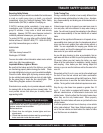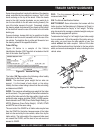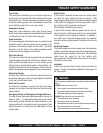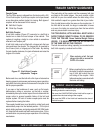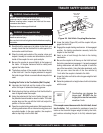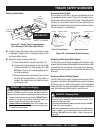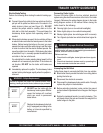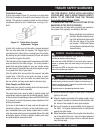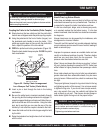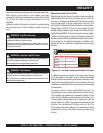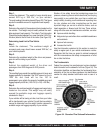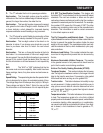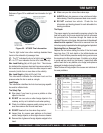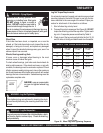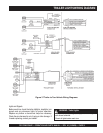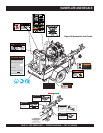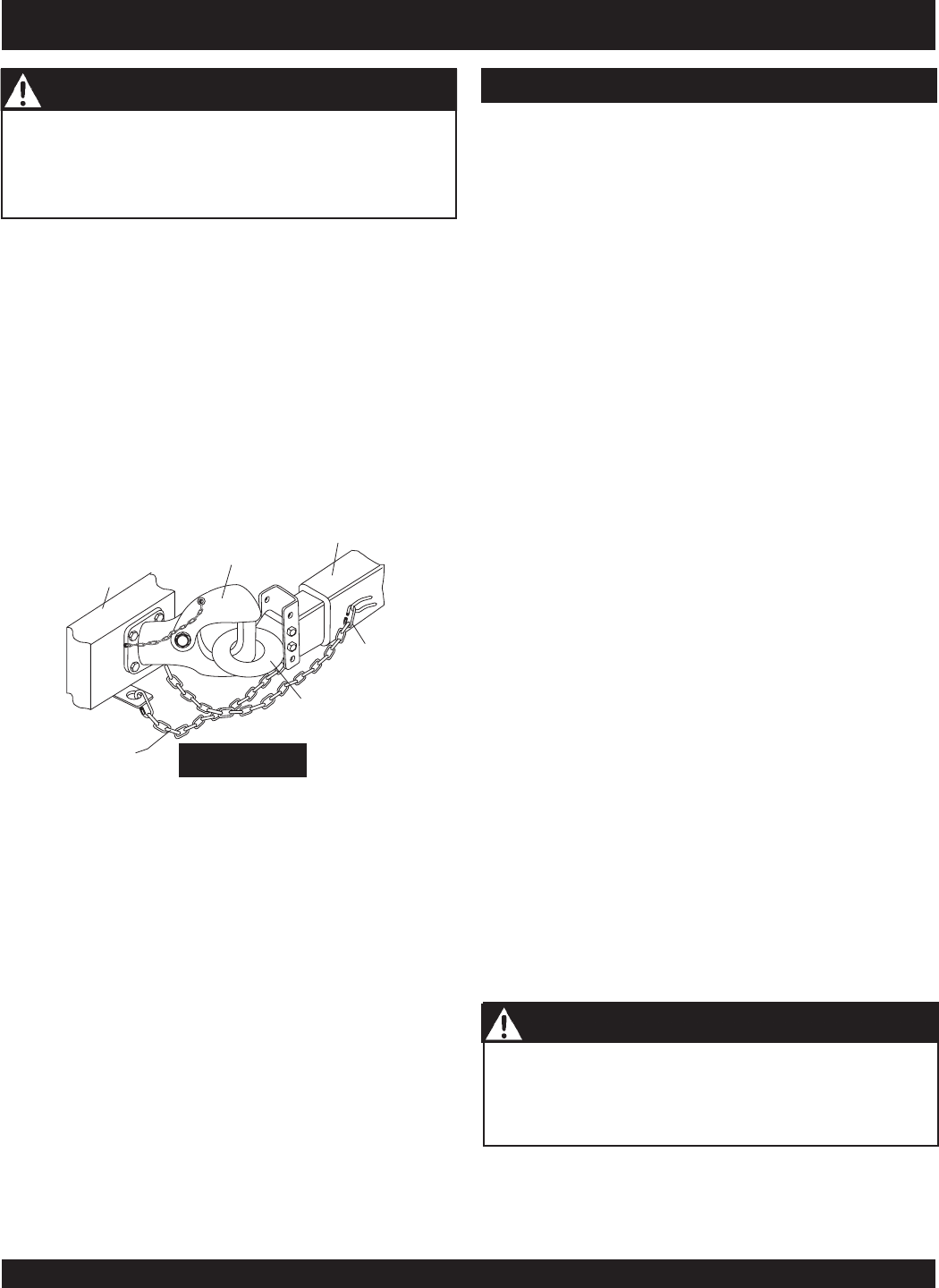
DRY PRIME PUMP — OPERATION AND PARTS MANUAL — REV. #3 (10/06/08) — PAGE 45
TIRE SAFETY
A defective pintle hitch not properly fastened can result
in uncoupling, leading to death or serious injury.
Be sure the pintle hook is securly tighten to the tow vehicle
before coupling the trailer.
WARNING - Uncoupled Pintle Hitch Hook
Coupling the Trailer to the Tow Vehicle (Pintle Coupler)
Slowly back up the tow vehicle so that the pintle hitch
hook is near or aligned under the pintle eye ring coupler.
Using the jackstand at the front of trailer (tongue), turn
the jackstand crank handle to raise the trailer. If the
pintle eye coupler does not line up with the pintle hitch
hook, adjust the position of the tow vehicle.
OPEN the pintle hook locking mechanism (Figure 32).
Place the hook inside the eye coupler. CLOSE the pintle
hook mechanism.
Insert a pin or lock through the hole in the locking
mechanism.
Be sure the pintle hook is inserted completely through
the eye ring and the locking mechanism is engaged. A
properly engaged locking mechanism will allow the cou-
pler to raise the rear of the tow vehicle. Using the trailer
jack, test to see that you can raise the rear of the tow
vehicle by1-inch after the coupler is locked to the hitch.
Lower the trailer so that its entire tongue weight is held
by the hitch.
Raise the jackstand to a height where it will not interfere
with the road.
TRAILER
TONGUE
SAFETY CHAIN
MASTER LINK
TOW
VEHICLE
CROSS BOTH
SAFETY CHAINS
IMPORTANT!
PINTLE
HOOK
PINTLE
RING “EYE”
SAFETY
CHAIN
TIRE SAFETY
Unsafe Tires, Lug Nuts or Wheels
Trailer tires and wheels are more likely to fail than car tires
and wheels because they carry a heavier load. Therefore, it
is essential to inspect the trailer tires before each tow.
If a tire has a bald spot, bulge, cuts, is showing any cords,
or is cracked, replace the tire before towing. If a tire has
uneven tread wear, take the trailer to a dealer service center
for diagnosis.
Uneven tread wear can be caused by tire imbalance, axle
misalignment or incorrect inflation.
Tires with too little tread will not provide adequate tracking
on wet roadways and can result in loss of control, leading to
death or serious injury.
Improper tire pressure causes an unstable trailer and can
result in a tire blowout and loss of control. Therefore, before
each tow you must also check the tire pressure. Tire
pressure must be checked when tires are cold.
Allow 3 hours cool-down after driving as much as 1 mile at
40 m.p.h. before checking tire pressure. NOTE: Trailer tires
willbe inflated to higher pressures than passenger vehicle
tires.
Since trailer wheels and lug nuts (or bolts) are subjected to
greater side loads than automobile wheels, they are more
prone to loosen. Before each tow, check to make sure they
are tight.
The proper tightness (torque) for lug nuts is listed in the lug
nut tightening section of this manual. Use a torque wrench
to tighten the lug nuts. If you do not have a torque wrench,
use a lug wrench (from your tow vehicle) and tighten the
nuts as much as you can. Then have a service garage or
trailer dealer tighten the lug nuts to the proper torque.
Metal creep between the wheel rim and lug nuts will cause
rim to loosen and could result in a wheel coming off,
leading to death or serious injury.
Tighten lug nuts before each tow.
WARNING - Lug Nut Tightening
Figure 32. Safety Chain Arrangement
for a Bumper Pull Trailer (Pintle Hitch)



